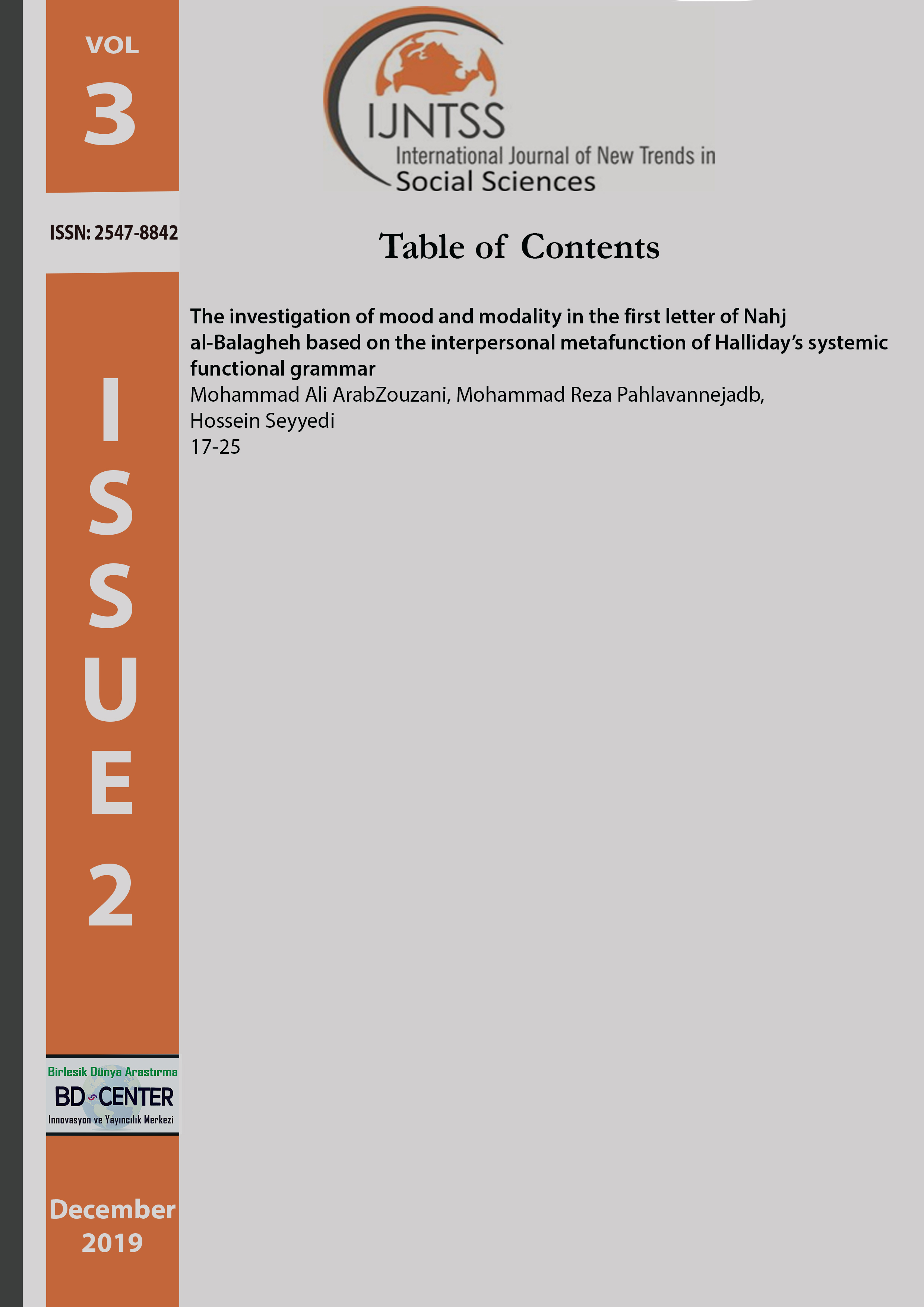The investigation of mood and modality in the first letter of Nahj al-Balagheh based on the interpersonal metafunction of Halliday's systemic functional grammar
Main Article Content
Abstract
Believing that some particular texts worth scientific studies, we put the first letter of Nahj al-Balagheh under investigation according to the concept of mood and modality in the interpersonal metafunction of Halliday's systemic functional grammar. A brief literature of mood and modality is given first. Then, the theoretical framework of the study is set, and finally, the text of the letter is analysed and explained according to the theory. The result indicated that the theory is assignable to Arabic, the language of the letter, but mediation is needed. The mood structure is mostly leaning on the predicator as it pays an important role in showing tense, polarity and modality of the clause. Subject and modal adjuncts are also apparent in some clauses as mood elements. The text of the letter is composed mostly of positive statements so that a knowledgeable source, Imam Ali, gives information to a group of unaware deceived people about the controversial subject of the third Khalifeh's death. Some imperative clauses are also included to warn the people and to offer them the correct way.
Keywords: Mood, modality, interpersonal metafunction, systemic functional grammar.
Downloads
Article Details

This work is licensed under a Creative Commons Attribution 4.0 International License.
Authors who publish with this journal agree to the following terms:
- Authors retain copyright and grant the journal right of first publication with the work simultaneously licensed under a Creative Commons Attribution License that allows others to share the work with an acknowledgement of the work's authorship and initial publication in this journal.
- Authors are able to enter into separate, additional contractual arrangements for the non-exclusive distribution of the journal's published version of the work (e.g., post it to an institutional repository or publish it in a book), with an acknowledgement of its initial publication in this journal.
- Authors are permitted and encouraged to post their work online (e.g., in institutional repositories or on their website) prior to and during the submission process, as it can lead to productive exchanges, as well as earlier and greater citation of published work (See The Effect of Open Access).
